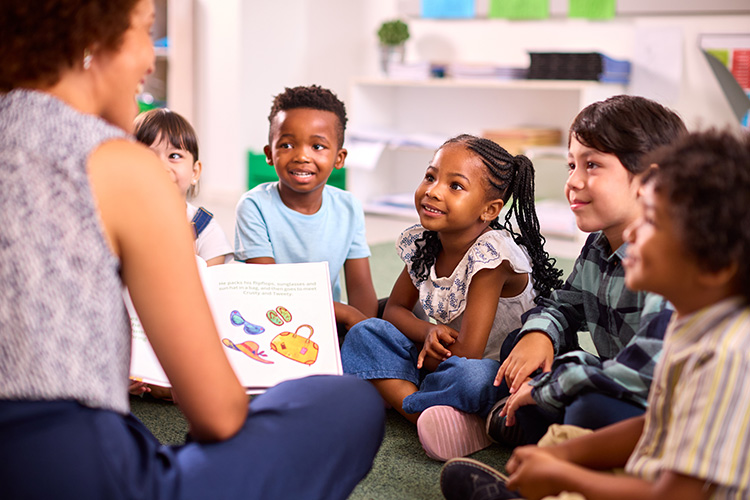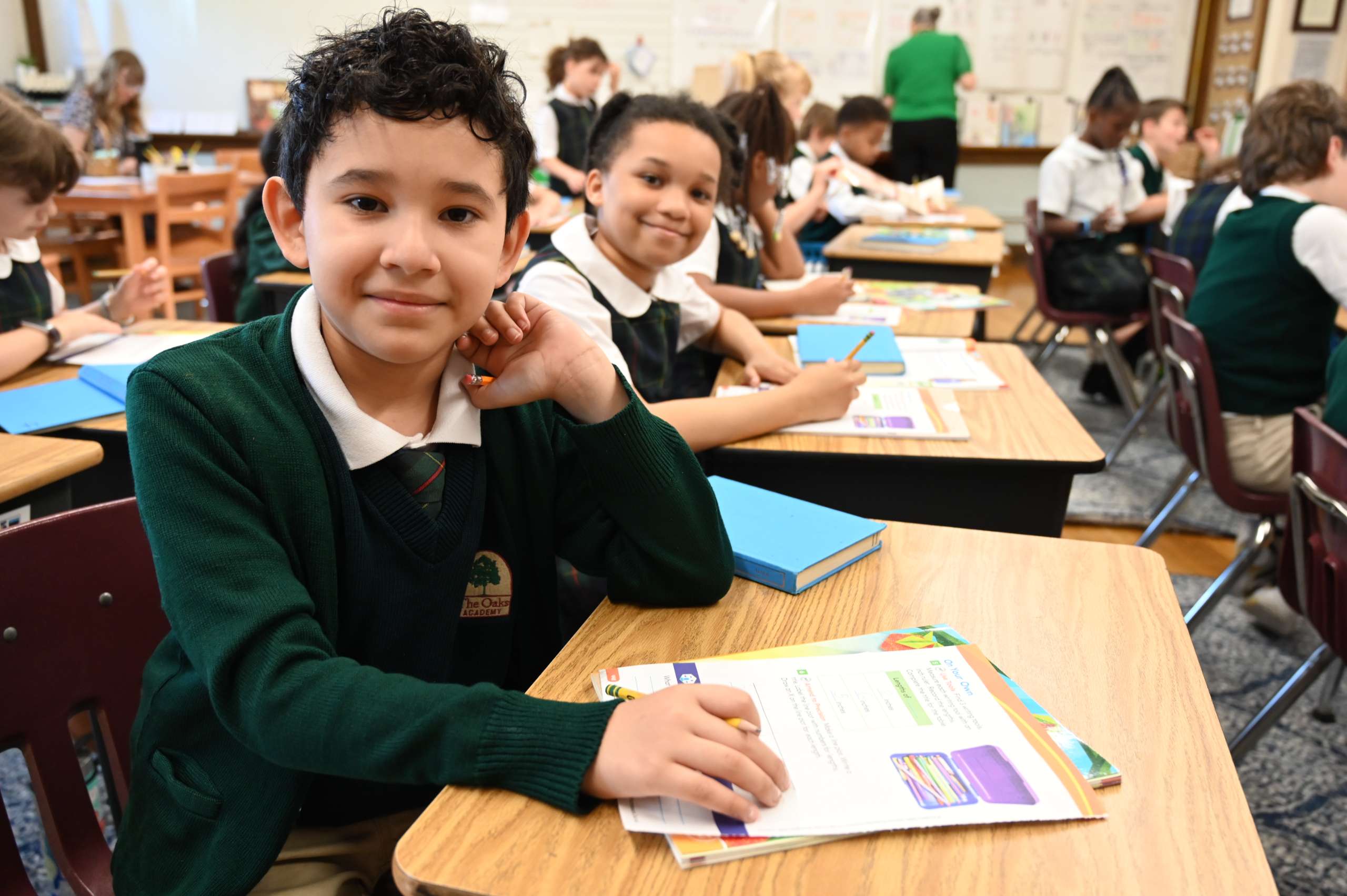How Grade School Peoria Helps Students Develop Essential Life Skills
Wiki Article
Factors to Think About in Choosing Independent School: Comprehending What Each Establishment Needs To Offer for Your Child's Development
Selecting a personal institution for a kid involves mindful consideration of several factors. Parents need to evaluate the academic curriculum and mentor philosophies of various organizations. They need to also discover extracurricular tasks that could enrich their youngster's experience. Furthermore, recognizing the school's society and values is important for placement with family members beliefs. As economic implications play a considerable role, it is vital to consider tuition expenses against readily available scholarships. How do these components form a child's development course?Academic Curriculum and Training Viewpoint
When selecting an independent school, comprehending the academic educational program and training philosophy is necessary, as these elements substantially affect a kid's educational experience. Parents should examine the college's technique to mentor and the subjects used, as this can vary substantially amongst institutions. Some schools may take on a standard curriculum concentrated on core subjects, while others might stress project-based knowing or interdisciplinary research studies.Furthermore, the teaching approach can form class characteristics and pupil interaction. Colleges that prioritize a student-centered strategy usually foster critical reasoning and partnership, while those with a more organized environment may concentrate on self-control and fundamental abilities.
Extracurricular Tasks and Enrichment Programs

Importance of Diverse Activities
While academic quality is often focused on secretive schools, the importance of varied tasks, including after-school activities and enrichment programs, can not be overemphasized. These activities play a vital function in a kid's all natural advancement, offering possibilities for creativity, important reasoning, and synergy. Engaging in different pursuits allows students to discover their rate of interests, find brand-new passions, and develop essential life skills, such as time administration and self-control. Furthermore, varied activities can cultivate a sense of belonging and neighborhood, improving the general institution experience. By getting involved in clubs, sporting activities, and artistic endeavors, students not just enrich their education yet additionally create memorable experiences that add to their personal growth. Diverse tasks are essential to cultivating well-rounded people.Influence on Social Skills
Exactly how do extracurricular activities and enrichment programs influence a youngster's social skills? These programs offer essential chances for youngsters to communicate with peers beyond the conventional class setup. Engaging in sporting activities, clubs, or arts fosters synergy, problem, and interaction resolution. Youngsters learn to navigate varied social settings, enhancing their ability to form friendships and develop compassion. Furthermore, participating in various tasks urges self-confidence, as kids take on new difficulties and obligations. As they work together on tasks or complete in groups, they additionally get beneficial experience in leadership and collaboration. Inevitably, a rich array of extracurricular offerings adds considerably to a kid's social advancement, preparing them for future interpersonal interactions in both academic and personal contexts.School Society and Values
Understanding the school society and worths is necessary for moms and dads examining private education options, as these elements greatly affect a youngster's general experience. Each institution symbolizes one-of-a-kind approaches, practices, and social standards that form trainees' day-to-days live. An institution that stresses inclusivity may foster a supportive environment, motivating children to create compassion and respect for varied histories. Alternatively, institutions that prioritize scholastic excellence may produce an affordable ambience, encouraging trainees to go for high achievement.The placement of an institution's worths with a household's ideas can improve a kid's feeling of belonging, reinforcing favorable actions and attitudes. Moms and dads must investigate the college's objective statement, assess its corrective policies, and observe pupil interactions to assess the current society. Ultimately, a school's culture and worths considerably affect not just scholastic success but also personal growth, furnishing children with vital life skills for their future.
Course Dimension and Student-Teacher Proportion
Class dimension and student-teacher ratio play an important role in the academic experience supplied by independent schools. Smaller sized classes usually result in boosted specific focus, promoting far better student engagement and understanding. Study indicates that these variables can substantially influence finding out results, making them important factors to consider for parents.Advantages of Smaller Sized Classes
Smaller sized course dimensions substantially improve the academic experience by promoting extra customized interest from teachers. In these atmospheres, teachers can tailor their guideline to meet private trainee requirements, enabling a much deeper understanding of the material. With fewer students, instructors can extra Grade School quickly determine those who might be battling and offer prompt assistance. This close interaction can cultivate more powerful connections in between instructors and pupils, developing a supportive environment favorable to discovering. Additionally, smaller classes typically promote higher involvement, as students might really feel a lot more comfy articulating their thoughts and inquiries. This vibrant urges collective discovering and enhances general classroom engagement. Inevitably, the advantages of smaller sized courses add extremely to a well-shaped instructional experience that prioritizes trainee advancement and growth.Influence On Learning Outcomes
The advantages of smaller sized courses prolong past tailored attention, considerably influencing finding out outcomes. Research study continually shows that a reduced student-teacher proportion fosters boosted engagement, enabling teachers to tailor direction to private needs. This environment motivates active involvement, essential thinking, and deeper understanding of the product. In smaller setups, instructors can a lot more effectively recognize and attend to learning spaces, causing improved academic efficiency. Private School. Furthermore, students typically feel a lot more comfy revealing their ideas and asking inquiries, which can additionally enhance the discovering experience. On the other hand, larger course sizes may restrict communication and responses, possibly preventing trainee growth. Therefore, when examining private institutions, households should think about course dimension and student-teacher proportions as significant variables influencing their kid's academic successArea Engagement and Adult Involvement
How can community interaction and parental involvement boost the academic experience secretive colleges? These aspects play a vital role in enriching the learning setting. When moms and dads actively take part in college activities, they cultivate a sense of belonging and support amongst trainees. This involvement can take various kinds, such as volunteering for events, going to meetings, or signing up with committees, which not only reinforces the school community yet also improves communication in between instructors and family members.Area engagement prolongs this assistance by linking the college with regional organizations, businesses, and social organizations (Grade School). Such collaborations supply pupils with distinct understanding possibilities, consisting of teaching fellowships and workshops, which add to their overall development. Additionally, institutions that prioritize these connections typically create an even more inclusive environment, allowing diverse perspectives to be shared. Ultimately, community involvement and parental participation serve to develop a collaborative and supportive setting that contributes positively to pupils' academic and social success
Financial Considerations and Scholarships
Maneuvering the financial landscape of independent schools can be a complex procedure for households. Tuition costs differ substantially, often affected by factors such as location, centers, and the institution's reputation. Family members should analyze their monetary scenario, considering not only tuition yet also extra expenditures like attires, fees, and after-school activities.Many exclusive colleges provide scholarship programs targeted at drawing in varied trainee populaces - Private School. These scholarships can alleviate financial concerns and make quality education and learning available to families with differing revenue degrees. It is crucial for parents to ask about the availability of merit-based and need-based scholarships and comprehend the application processes entailed
Additionally, some schools supply versatile layaway plan that can ease immediate financial stress. By evaluating all monetary aspects and discovering scholarship possibilities, family members can make informed choices that align with their instructional objectives and financial restrictions.
Often Asked Inquiries
Just How Do Schools Assistance Trainees With Understanding Disabilities?
Schools support pupils with discovering specials needs with individualized education strategies, specialized teaching methods, and added resources. They typically offer customized treatments, accessibility to sustain staff, and inclusive settings to cultivate emotional and academic growth.What Is the College's Strategy to Discipline and Actions Administration?
The college's approach to technique and actions administration stresses positive support, clear assumptions, and corrective methods. Team actively involve trainees in discussions regarding actions, cultivating an encouraging setting that encourages personal responsibility and accountability.How Do Colleges Deal With Pupil Changes, Such as Relocating to Greater Qualities?
Institutions usually supply organized support during trainee modifications, consisting of alignment programs, mentorship opportunities, and tailored scholastic preparation. These measures intend to reduce stress and anxiety, advertise modification, and assurance students are planned for the difficulties of higher grades.What Are the College's Policies on Modern technology Usage in the Classroom?

Exactly How Do Schools Evaluate Student Development and Give Responses to Parents?
Schools evaluate trainee development with normal examinations, consisting of tests, projects, and classroom involvement. Comments is given to parents by means of progress report, parent-teacher meetings, and on-line sites, making sure constant communication regarding each kid's scholastic advancement.
Report this wiki page